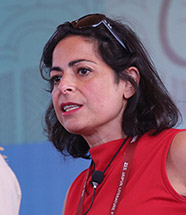CIS Event Calendar
Thinking about Tankers: Labour, Port-Making, and Capitalism
Thinking about Tankers: Labour, Port-Making, and Capitalism

Laleh Khalili
Recent research on containerisation and logistics has shown the transformations these new modalities of disciplining trade have wrought not only in the circulation of goods but also the processes of production, since the 1950s when containers were invented. However, many of the practices we now associate with containerisation go back at least two decades before the 1950s, to the legal, engineering, and financial innovations around petroleum tankers.
By focusing on the tanker terminals of the Arabian Peninsula since the 1930 and the subsequent burgeoning trade between the Peninsula and the rest of the world, I will illuminate the radical transformations the tanker trade has anticipated. These include early automated workplaces; terminals isolated from public scrutiny; and disciplining of workers aboard tankers. Further the shift in ownership structures and financing of tanker trades over the last one-hundred years either foreshadows or dramatically illuminates the transformations in financial capital itself. Finally much of lex petrolea, the legal and arbitral corpus that sets the parameter of extraction and circulation of oil, itself provides the ground on which late capitalist legal property regimes are founded.
Laleh Khalili is a professor in Middle East Politics at SOAS University of London, and the author of Heroes and Martyrs of Palestine (Cambridge 2007) and Time in the Shadows (Stanford 2013). Her Sinews of War and Trade -about the politics of maritime transportation in the Arabian Peninsula- will be published by Verso in Autumn 2019.